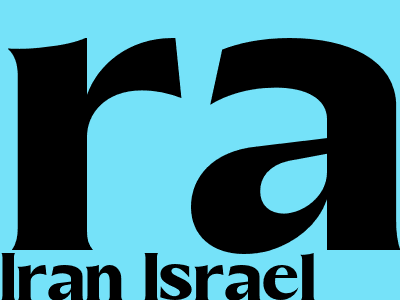
Iran and Israel: A Conflict with Global Implications
A Complex History and Ongoing Tension
The relationship between Iran and Israel has been marked by decades of hostility and conflict. The two countries have fought several wars, and tensions continue to simmer today. The conflict has its roots in a number of factors, including religious differences, territorial disputes, and ideological clashes.
One of the key factors in the conflict is the religious divide between the two countries. Iran is a predominantly Shia Muslim country, while Israel is a predominantly Jewish country. This religious difference has been a source of tension for centuries, and it has been exacerbated by political and military conflicts.
Another factor in the conflict is the territorial dispute between the two countries. Iran claims sovereignty over the Palestinian territories, which are currently occupied by Israel. This dispute has been a major source of tension between the two countries, and it has led to several wars.
The Impact of the Conflict
The conflict between Iran and Israel has had a significant impact on the Middle East and the world. The wars between the two countries have caused widespread destruction and loss of life. The conflict has also contributed to the instability of the region and has made it difficult to find a lasting peace settlement.
The conflict has also had a significant impact on the global economy. The wars between the two countries have disrupted oil supplies and have led to higher energy prices. The conflict has also made it difficult to do business in the region, and it has discouraged investment.
The Future of the Conflict
The future of the conflict between Iran and Israel is uncertain. There are a number of factors that could contribute to a peaceful resolution of the conflict, but there are also a number of factors that could lead to further escalation.
One of the key factors that could contribute to a peaceful resolution of the conflict is a change in the political leadership of the two countries. If the leaders of Iran and Israel were able to find common ground, it could be possible to negotiate a peace settlement.
Another factor that could contribute to a peaceful resolution of the conflict is a change in the regional balance of power. If Iran were to become more powerful, it could be more difficult for Israel to maintain its military superiority. This could lead to a situation where both countries are more willing to negotiate a peace settlement.
However, there are also a number of factors that could lead to further escalation of the conflict. One of the key factors is the continued development of Iran's nuclear program. If Iran were to develop nuclear weapons, it could pose a major threat to Israel and the region.
Another factor that could lead to further escalation of the conflict is the continued support of Hezbollah by Iran. Hezbollah is a terrorist organization that is based in Lebanon. It has launched numerous attacks on Israel, and it is a major source of instability in the region.
Conclusion
The conflict between Iran and Israel is a complex and multifaceted issue. There are a number of factors that have contributed to the conflict, and there are a number of factors that could contribute to a peaceful resolution. The future of the conflict is uncertain, but it is clear that the conflict has had a significant impact on the Middle East and the world.
## Additional Resources - [The Iran-Israel Conflict: A Timeline](https://www.cfr.org/backgrounder/iran-israel-conflict-timeline) - [The Iran-Israel Conflict: A Primer](https://www.brookings.edu/blog/order-from-chaos/2019/05/31/the-iran-israel-conflict-a-primer/) - [The Iran-Israel Conflict: A Guide for the Perplexed](https://www.atlanticcouncil.org/blogs/iransource/the-iran-israel-conflict-a-guide-for-the-perplexed/)